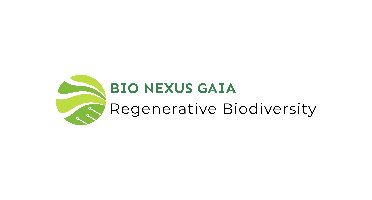
CLEMENT
Project OwnerAs a four time awardee on Deepfunding, he will serve as visionary & strategic lead, overseeing project direction and ensuring alignment with Beneficial General Intelligence (BGI) principles.

Milestone Release 1 |
$12,000 USD | Pending | TBD |
Milestone Release 2 |
$25,000 USD | Pending | TBD |
Milestone Release 3 |
$10,000 USD | Pending | TBD |
Milestone Release 4 |
$3,000 USD | Pending | TBD |
A next-generation platform leveraging AI to revolutionize biodiversity conservation. It features a dynamic, case-by-case database of flora and fauna, empowering global researchers with crucial ecological data. It also comprises of a transparent mini carbon credit marketplace that supports ecological conservation funding, while incorporating a citizen science and ecotourism initiative that foster public engagement efforts aimed at eco conservation. It is designed with Beneficial AGI principles, ensuring safety, ethics, and regenerative sustainability, driving positive AI behavior and advancing environmental resilience through cutting-edge, decentralized technology.
New AI service
To help identify plant and animal species from images audio and video data while mapping their habitats.
Images audio recordings (e.g. bird calls) and GPS coordinates from citizen scientists drones or IoT sensors.
Species classification conservation status (e.g. endangered invasive) and real-time habitat distribution maps
New AI service
This will allow users to analyze global biodiversity trends using federated AI learning inputs from citizen science data and ecotourism feature
Crowdsourced species observations research papers and IoT-collected environmental data
Open-source biodiversity insights AI-generated ecological reports and automated conservation policy recommendations
New AI service
Forecast species extinction risks and the impact of climate change on ecosystems
Historical biodiversity data climate change models and real-time environmental data.
Risk assessment scores predicted habitat shifts and early warning alerts for conservationists
BIONEXUS GAIA integrates AI, blockchain, and decentralized governance to protect biodiversity and build sustainable ecosystems. The project collects images and GPS data from scientists, citizens, and sensors to forecast extinction risks, predict climate impacts, and provide early warnings for conservation efforts. It is highly aligned with BGI's ethical AI mission. Innovations including AI-driven species identification, biodiversity risk analysis, and a transparent carbon credit marketplace. The blockchain-based approach increases data transparency and enables community participation. However, challenges include execution gaps in federated AI training, blockchain security measures, user engagement sustainability, and funding beyond grants. Regulatory compliance and clear AI training methodologies also need strengthening. Despite these concerns, there is tremendous potential in this global collaborative network if the project can address these implementation gaps and develop a robust operational strategy.
New reviews and ratings are disabled for Awarded Projects
The activities in this milestone would be geared towards the development of a decentralized biodiversity data registry leveraging a public blockchain (e.g. Polygon Algorand or any other suitable chain). This registry will store conservation records species data and ecological impact reports. As a safety consideration our smart contracts will undergo security audits to prevent fraud and data manipulation. As regards ethical considerations we are keen on ensuring that data sovereignty will be respected—citizen scientists will retain ownership of their contributions.
A functional prototype that logs biodiversity data with timestamped records for transparency.
$12,000 USD
Successful on-chain storage and retrieval of at least 25-50 biodiversity records, verified through test transactions.
This milestone will be geared towards training and deploying an AI-powered species identification model using open-source datasets (e.g. iNaturalist GBIF). The model will classify species based on images audio and video input from researchers and citizen scientists. As a safety consideration our AI model will undergo bias testing welcoming contributions from human reviewers as well. As an ethical consideration we are keen on ensuring that our AI model does not displace conservation experts but rather enhance human decision-making
A functional AI model with an API for biodiversity classification integrated into a prototype web platform
$25,000 USD
The AI model is to identify species across specified test datasets.
The milestones here will be geared towards launching a citizen science module that allows users to contribute biodiversity data via images geo-tagging and species observations. We would also be exploring gamification incentives e.g creation of the GAIA NFTs. As a safety consideration our team will consider the use of content moderation tools that will help reduce or totally prevent data pollution from false or malicious biodiversity records. On the ethical side of things we would ensure that open participation will be incentivized without financial barriers ensuring equitable access to conservation technology.
A beta-version citizen science portal with at least 10 active contributors submitting biodiversity observations followed by the creation of the GAIA NFTs.
$10,000 USD
At least 20 - 30 species observations logged in the system post-launch.
This milestone will be dedicated to compiling a comprehensive technical documentation covering the AI biodiversity model blockchain data registry and citizen science platform. This milestone will also include a detailed roadmap outlining the future development of the AI-powered carbon credit marketplace as a long-term vision for the project. As a safety consideration our technical documentation will include best practices for security AI fairness and ethical biodiversity monitoring. Additionally we are considering publishing an open ethical AI charter specific to the BIONEXUS GAIA project inviting stakeholder and community feedback.
A publicly accessible technical whitepaper with documentation including system architecture and a feasibility study for the carbon credit marketplace.
$3,000 USD
Completion and publication of the technical documentation with peer/community review feedback incorporated, ensuring clarity for future development.
Please create account or login to post comments.
Reviews & Ratings
BIONEXUS GAIA integrates AI, blockchain, and decentralized governance to protect biodiversity and build sustainable ecosystems. The project collects images and GPS data from scientists, citizens, and sensors to forecast extinction risks, predict climate impacts, and provide early warnings for conservation efforts. It is highly aligned with BGI's ethical AI mission. Innovations including AI-driven species identification, biodiversity risk analysis, and a transparent carbon credit marketplace. The blockchain-based approach increases data transparency and enables community participation. However, challenges include execution gaps in federated AI training, blockchain security measures, user engagement sustainability, and funding beyond grants. Regulatory compliance and clear AI training methodologies also need strengthening. Despite these concerns, there is tremendous potential in this global collaborative network if the project can address these implementation gaps and develop a robust operational strategy.
New reviews and ratings are disabled for Awarded Projects
© 2025 Deep Funding

Sort by